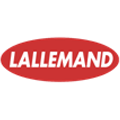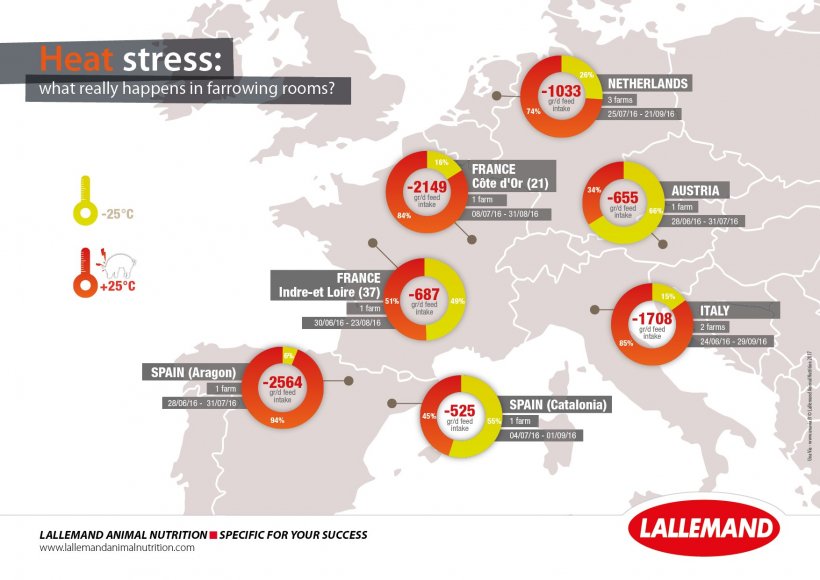 These are the findings from an initial survey conducted by Lallemand Animal Nutrition in order to evaluate the reality of heat stress in the farrowing rooms across Europe. The consequences for the sow and the farmer range from discomfort to reduced body weight and reproduction issues.
These are the findings from an initial survey conducted by Lallemand Animal Nutrition in order to evaluate the reality of heat stress in the farrowing rooms across Europe. The consequences for the sow and the farmer range from discomfort to reduced body weight and reproduction issues.


Recent trial (INRA Pegase, France, unpublished) confirms that the use of probiotic yeast S. cerevisiae boulardii I-1079 in feed, known to help control digestive process and performance under challenging conditions, could contribute to adaptation to heat stress. The study was performed by E. Labussière and his team at IINRA Pegase, using state-of-the-art experimental facility to study energy balance and metabolism under controlled conditions. They used finishing pigs as a model for swine and sows, (the bigger the animal, the more sensitive to heat stress). Results indicate that LEVUCELL SB had a positive effect on growth performance under both thermo-neutral and heat stress conditions. However, the supplementation had a greater impact under heat stress as it was able to “compensate” for the negative impact of high temperature on pig growth.
This could be linked to two effects of the supplement:
- Improved feeding behavior: The number of meals per day was significantly improved under heat stress and the total daily feed intake was not affected by ambient temperature with LEVUCELL SB.
- Positive effect on energy metabolism: Less energy is consumed for heat production, therefore more energy was made available for pig growth.
Farm trials conducted with sows in maternity pen confirm similar benefits in sows in field conditions: improved sow feed intake, reduced body weight loss in lactation, translated into increased piglet pre-weaning average daily gain (ADG), and even reduction of piglet neonatal diarrhea.
Hence, LEVUCELL SB could represent a valuable tool to help alleviate the heavy toll of heat stress on pig production, in complement to relevant heat abatement strategies in the barn.
June 14, 2017 - Lallemand



